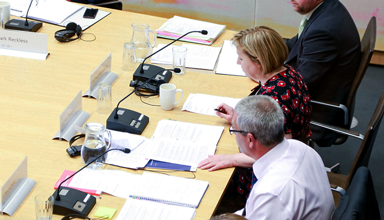Lessons must be learned from the purchase of Gilestone Farm, according to the Senedd’s Public Accounts and Public Administration Committee, who is calling for urgent improvements and better governance for acquisition practices.
The Committee identified significant failings in the handling of the acquisition, raising broader concerns about governance, due diligence, and community engagement. The Committee’s report, published today (Monday, 28 July 2025) highlights that the purchase was rushed due to end-of-year budget pressures, resulting in avoidable mistakes.
In March 2022, the government paid £4.25m for the freehold of Gilestone Farm, near Talybont-on-Usk in Powys, as part of a plan to secure the future of Greenman Festival held nearby. There has since been a £0.5 million drop in the asset’s value.
Mark Isherwood MS, Chair of the Senedd’s Public Accounts and Public Administration Committee, said: “The Committee is deeply concerned by the Welsh Government’s handling of the purchase of Gilestone Farm. While we recognise the importance of acting swiftly to support the creative sector, this decision was taken with avoidable haste and without the thorough due diligence that the public rightly expects. It raises serious questions about internal processes and the robustness of governance structures.
“Furthermore, the Welsh Government must do more to ensure that communities are not only consulted but genuinely listened to. Engagement must be meaningful, inclusive, and consistent.
“The significant loss in the value of the property is particularly notable in the current financial climate, and we expect the Welsh Government to clarify its future intentions for the site and to set out how it will mitigate the financial loss to the public purse.
“To ensure lessons are learned, the Committee will want to carry out further work looking at the Welsh Government’s approach to property investments, to assess whether current processes are sufficiently rigorous and fit for purpose.”







